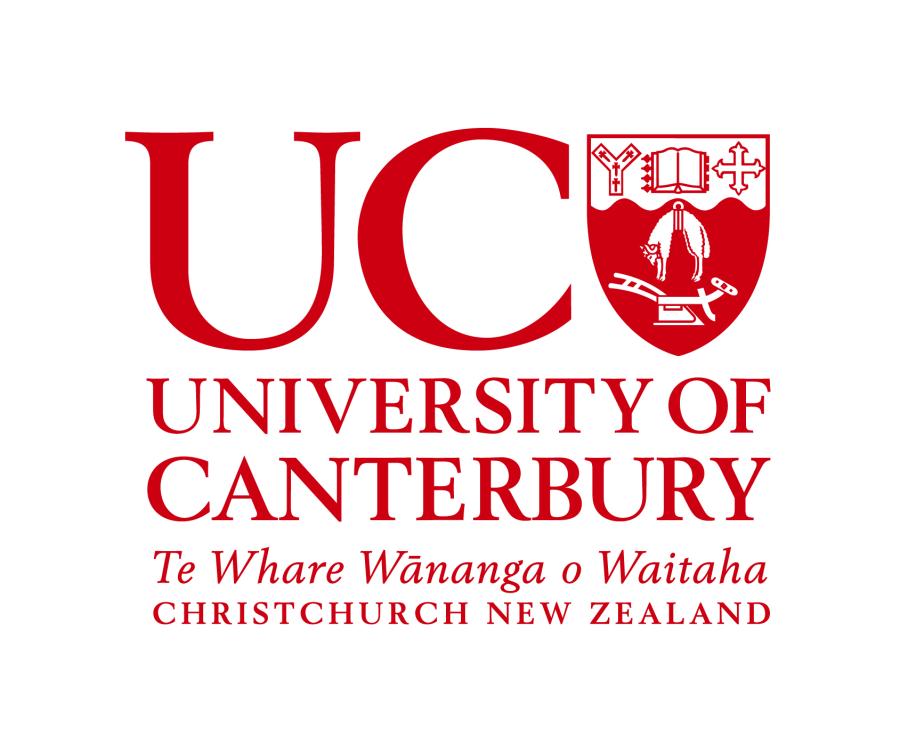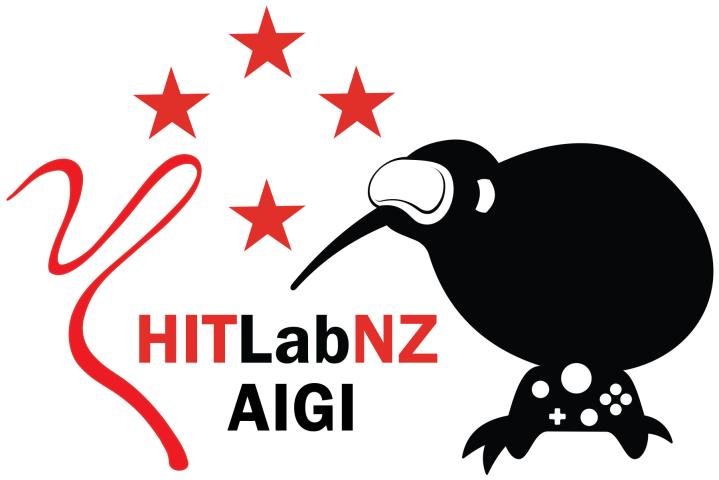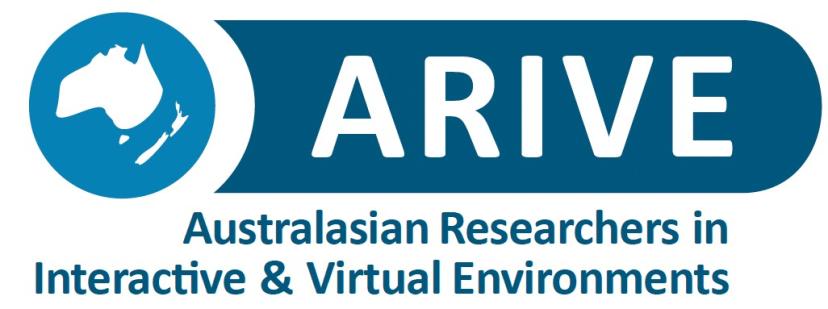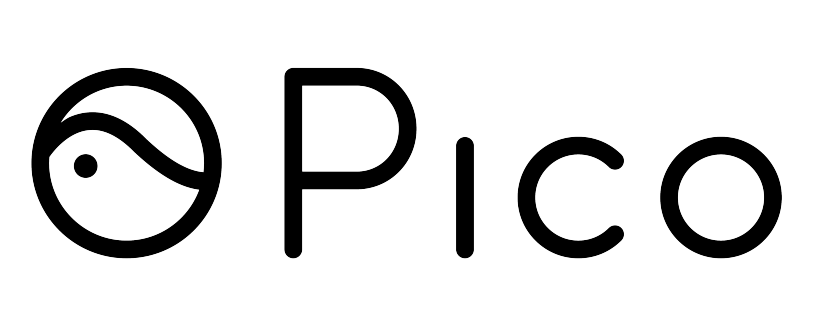
Workshops
| Saturday, March 12, NZDT, UTC+13 | |
|---|---|
| 3D Reconstruction, Digital Twinning, and Simulation for Virtual Experiences (ReDigiTS) | 8:00 - 11:30 |
| Sonic Interaction in Virtual Environments | 8:00 - 11:00 |
| ARES - Augmented Reality Enabling Superhuman Sports + Serious Games | 8:00 - 11:00 |
| 1st International Workshop on Socially Intelligent Virtual Agents (SIVA) | 8:00 - 11:00 |
| Open Access Tools and Libraries for Virtual Reality | 11:00 - 14:00 |
| 1st International Workshop on eXtended Reality for Industrial and Occupational Supports (XRIOS) | 11:00 - 15:00 |
| Empathic Computing | 11:00 - 16:00 |
| Data4XR: Datasets for Developing Intelligent XR Applications | 14:00 - 17:00 |
Workshop: 3D Reconstruction, Digital Twinning, and Simulation for Virtual Experiences (ReDigiTS)
Saturday, March 12, 8:00, NZDT UTC+13
Principal Organiser: Fabrizio Lamberti
Website: https://sites.google.com/view/redigits
Discord URL: https://discord.com/channels/842181663248482334/951009682602999828
The aim of this workshop is to attract a collection of high-quality submissions reporting state-of-the-art research activities targeted to the next generation of immersive experiences, reporting the latest methodologies, applications, standards, evaluations, and/or use cases for 3D reconstruction, digital twinning, and simulation for immersive experiences.Despite the pivotal role played by these research directions in the design and development of immersive experiences, they are only partially addressed in the topics of workshops organized in the previous editions of IEEE VR.
Lightweight Collision Detection Algorithm in Web3D Robot Simulation Platform
Weiqiang Wang, Hantao Zhao, Jinyuan Ji
DentalVerse: Interactive Metaverse Virtual Reality Implementation to train preclinical dental student psychomotor skill
Markus Santoso, Sadie Crawford, Erica Del Hagen, Jiaming Du, Emily Husak, Zihang Liao, Markus Santoso, Cortino Sukotjo
Investigating Lighting Quality in Office Workstations: A Combined Approach Utilizing Virtual Reality and Physical Workstations
Roxana Jafarifiroozabadi, Piers MacNaughton, Alina Osnaga
Designing VR training systems for children with attention deficit hyperactivity disorder (ADHD)
Ho Yan Kwan, Lang Lin, Conor Fahy, Jethro Shell, Shiqi Pang, Yongkang Xing
3D Reconstruction, Digital Twinning, and Virtual Reality: Architectural Heritage Applications
Marco Giorgio Bevilacqua, Andrea Giordano, Michele Russo, Roberta Spallone
Application of LargeSpace for Investigating Pedestrians' Behaviors when Interacting with Autonomous Vehicles in Shared Spaces
Andri Janto, Zhangyijing Chen, Takuro Kodama, Hiroaki Yano, Makoto Itoh
Photogrammabot: An Autonomous ROS-Based Mobile Photography Robot for Precise 3D Reconstruction and Mapping of Large Indoor Spaces for Mixed Reality
Soroosh Mortezapoor, Christian Schönauer, Julien Rüggeberg, Hannes Kaufmann
Challenges of experimenting with Virtual Reality
Krzysztof Szczurowski, Matt Smith
Immersive Virtual Reality for Virtual and Digital Twins: A Literature Review to Identify State Of The Art and Perspectives
Johanna Pirker, Enrica Loria, Saeed Safikhani, Andreas Künz, Sabrina Rosmann
Developing a VR Simulator for Robotics Navigation and Human Robot Interactions employing Digital Twins
Silas F. R. Alves, Alvaro Uribe-Quevedo, Delun Chen, Jon Morris, Sina Radmard
Are you Seeing what I'm Seeing?: Perceptual Issues with Digital Twins in Virtual Reality
Brian Adrian Flowers, Summer Rebensky
Workshop: Sonic Interaction in Virtual Environments
Saturday, March 12, 8:00, NZDT UTC+13
Principal Organiser: Michele Geronazzo
Website: https://sive.create.aau.dk/
Discord URL: https://discord.com/channels/842181663248482334/951009811309412352
The main goal of this workshop is to increase among the virtual reality community the awareness of the importance of sonic elements when designing virtual/augmented/mixed reality (VR/AR/MR) environments. We will also discuss how research in other related fields such as film sound theory, product sound design, sound and music computing, game sound design, and computer music can inform designers of VR/AR/MR environments. Moreover, the workshop will feature state-of-the-art research on the field of sound for VR/AR/MR environments.
Designing Sound Synthesis Interfaces for Head-mounted Augmented Reality
Yichen Wang, Charles Martin
The Effect of Spatial Audio on the Virtual Representation of Personal Space
Lauren Buck, Mauricio Flores Vargas, Rachel McDonnell
QiaoLe: Accessing Traditional Chinese Musical Instruments in VR
Jiali Zhang, Nick Bryan-Kinns
Workshop: ARES - Augmented Reality Enabling Superhuman Sports + Serious Games
Saturday, March 12, 8:00, NZDT UTC+13
Principal Organiser: Christian Eichhorn
Website: https://wiki.tum.de/pages/viewpage.action?pageId=1003688592
Discord URL: https://discord.com/channels/842181663248482334/951010185609084958
Slides: https://wiki.tum.de/pages/viewpage.action?pageId=1003688592
We want to bring together experts from different computing and engineering disciplines to overcome the barriers of complex AR game concepts and to enhance interactions with augmented objects in a playful way in two important research fields:
- The goal of Superhuman Sports is to surpass the limitations of the human body by incorporating technology. Cognitive and physical capabilities are augmented by involving rich interactions through tangible and virtual game objects. Concepts of team sports based on competition and the exploration of new experiences through novel senses and reflexes, are helping to augment traditional sports or to path the way towards new game ideas.
- Serious Games combine the world of playing games for entertainment with the goal of learning in an almost subconsciously manner. Combining these two approaches requires meeting the demands of both. Learning content must be presented correctly and coherently, but on the other hand, it must be perfectly integrated into a game concept.
Designing WindCage- Unpacking the Thinking and Prototyping a Propeller-Based Haptic Unit
Kao-Hua Liu, Tomoya Sasaki, Hiroyuki Kajihara, Atsushi Hiyama, Masahiko Inami, Chien-Hsu Chen
Advancing tangible augmented game objects for use in a golf swing, self-service training environment: Report of Work-in-Progress with a Multidisciplinary Emphasis
Anthony Luczak, J. Adam Jones, Reuben Burch, Jonathan Barlow, Patrick Nelsen, Steven M. Grice, Michael Taquino, Martin Duclos, Caleb Morgan
Workshop: 1st International Workshop on Socially Intelligent Virtual Agents (SIVA)
Saturday, March 12, 8:00, NZDT UTC+13
Principal Organiser: Susanne Schmidt
Website: https://sites.google.com/view/sivaieeevr2022
Discord URL: https://discord.com/channels/842181663248482334/951933476393869362
The workshop aims at the presentation of projects with innovative ideas in the field of socially intelligent virtual agents and subsequent discussion of challenges emerging from these projects. In particular, the workshop will focus on individualized, social human-agent relationships enabled by recent advances in AI research. This will complement existing activities at IEEE VR that focus on either user-controlled avatars or the functional aspects of conversational agents.
Personalization of Intelligent Virtual Agents for Motion Training in Social Settings
Celeste Mason, Frank Steinicke
Social Facilitation and Inhibition in Augmented Reality: Performing Motor and Cognitive Tasks in the Presence of a Virtual Agent
Fariba Mostajeran, Pia Reisewitz, Frank Steinicke
Anthropomorphism of Virtual Agents and Human Cognitive Performance in Augmented Reality
Fariba Mostajeran, Nadia Burke, Nazife Ertugrul, Kilian Hildebrandt, Joshua Matov, Noémie Tapie, Wilhelm Gottlieb Zittel, Pia Reisewitz, Frank Steinicke
Local Free-View Neural 3D Head Synthesis for Virtual Group Meetings
Sebastian Rings, Frank Steinicke
Behaviour Privacy: Non-verbal Threats in Avatar-based VR Systems
Dilshani Kumarapeli, Sungchul Jung, Robert W. Lindeman
Advanced Emotion Analytics of Virtual Group Meetings involving Intelligent Virtual Agents
Nidhi Joshi, Niklas Beecken, Hawa Bah, Frank Steinicke, Juliane Degner
Workshop: Open Access Tools and Libraries for Virtual Reality
Saturday, March 12, 11:00, NZDT UTC+13
Principal Organiser: Matias Volonte
Website: https://openvrlab.github.io/
Discord URL: https://discord.com/channels/842181663248482334/951010620260626443
Virtual Reality technologies are growing fast, and so is the VR research community. In this scenario, it is more important than ever that academic research builds upon best practices and results to amplify impact in the broader field. Open-Source tools are one means to propagate best practice as they lower the barrier to entry for researchers from an engineering point of view, while also embodying the prior work on which the tools were built. Open access tools are also critical to eliminate redundancies and increase world research collaboration in VR. At a time that academic research is growing it also needs to move as fast as the industry, collaboration and shared tools is the best way to do it. In this workshop, we will gather with creators and users of open-access libraries ranging from avatars (like the Microsoft Rocketbox avatar library) to animation to networking (Ubiq toolkit) to explore how open access tools are helping advance the VR community.
HeadBox: A Facial Blendshape Animation Toolkit for the Microsoft Rocketbox Library
Matias Volonte, Eyal Ofek, Ken Jakubzak, Shawn Bruner, Mar Gonzalez-Franco
STAG: A Tool for realtime Replay and Analysis of Spatial Trajectory and Gaze Information captured in Immersive Environments
Aryabrata Basu
Excite-O-Meter: an Open-Source Unity Plugin to Analyze Heart Activity and Movement Trajectories in Custom VR Environments
Luis Quintero, Panagiotis Papapetrou, John E. Muñoz, Jeroen de Mooij, Michael Gaebler
Developing Mixed Reality Applications with Platform for Situated Intelligence
Sean Andrist, Dan Bohus, Ashley Feniello, Nick Saw
Asymmetric Normalization in Social Virtual Reality Studies
Jonas Deuchler, Daniel Hepperle, Matthias Wölfel
An Open Platform for Research about Cognitive Load in Virtual Reality
Olivier Augereau, Gabriel Brocheton, Pedro Paulo DO Prado Neto
Physics-based character animation for Virtual Reality
Joan Llobera, Caecilia Charbonnier
NUI-SpatialMarkers: AR Spatial Markers For the Rest of Us
Alex G Karduna
Human Vision vs. Computer Vision: A Readability Study in a Virtual Reality Environment
Zhu Qing, Praveen Edara
RealityFlow: Open-Source Multi-User Immersive Authoring
John T. Murray
Integrating Rocketbox Avatars with the Ubiq Social VR platform
Lisa Izzouzi, Anthony Steed
BabiaXR: Virtual Reality software data visualizations for the Web
David Moreno-Lumbreras, Jesus M. Gonzalez-Barahona, Andrea Villaverde
Workshop: 1st International Workshop on eXtended Reality for Industrial and Occupational Supports (XRIOS)
Saturday, March 12, 11:00, NZDT UTC+13
Principal Organiser: Heejin Jeong
Website: https://sites.google.com/view/xrios2022
Discord URL: https://discord.com/channels/842181663248482334/951010749780746270
This workshop-eXtended Reality for Industrial and Occupational Supports (XRIOS)-aims to identify the current state of XR research and the gaps in the scope of human factors and ergonomics, mainly related to the industrial and occupational tasks, and discuss potential future research directions. XRIOS will build a community that bridges XR developers, human factors and ergonomics researchers interested in industrial and occupational applications.
Design of ARQ: An Augmented Reality System for Assembly Training Enhanced with QR-Tagging and 3D Engineering Asset Model
Slawomir K. Tadeja, Diana Janik, Przemyslaw Stachura, Maciej Tomecki, Krzysztof Walas
Situated Visualization of IIoT Data on the Hololens 2
Matthias Husinsky, Alexander Schlager, Arian Jalaeefar, Stefan Klimpfinger, Manuel Schumach
A Research Agenda for Enterprise Augmented Reality
Christine Perey, William Z. Bernstein
An XR-based Approach to Safe Human-Robot Collaboration
Sung Ho Choi, Kyeong-Beom Park, Dong Hyeon Roh, Jae Yeol Lee, Yalda Ghasemi, Heejin Jeong
Indirect Robot Manipulation using Eye Gazing and Head Movement For Future of Work in Mixed Reality
Kyeong-Beom Park, Sung Ho Choi, Hongju Moon, Jae Yeol Lee, Yalda Ghasemi, Heejin Jeong
Subjective and Objective Analyses of Collaboration and Co-Presence in a Virtual Reality Remote Environment
Allison Bayro, Yalda Ghasemi, Heejin Jeong
Search and Rescue AR Visualization Environment (SAVE): Designing an AR Application for Use with Search and Rescue Personnel
John Luksas, Kelsey Quinn, Joseph L. Gabbard, Mariam Hasan, Janet He, Neha Surana, Moustafa Tabbarah, Nishant Kishan Teckchandani
"Put your feet in open pit" - a WebXR Unity application for learning about the technological processes in the open pit mine
Radoslaw Pomykala, Michal Patyk, Mateusz Sikora, Artur Cybulski, Julia Boniecka, Jakub Juszczak, Tadeusz Klatka, Maciej Kedzierski, Magdalena Igras-Cybulska
Wearable Augmented Reality Interface Design for Bridge Inspection
Alan Smith, Charlie Duff, Rodrigo Sarlo, Joseph L. Gabbard
Virtual Reality in Small and Medium-Sized Enterprises: A Systematic Literature Review
Sandra Brettschuh, Michael Holly, Maria Hulla, Patrick Herstätter, Johanna Pirker
BuildAR: A Proof-of-Concept Prototype of Intelligent Augmented Reality in Construction
Doug A. Bowman, Joseph L. Gabbard, Nazila Roofigari-Esfahan, Keerthana Adapa, Daniel Auerbach, Kathryn Britt, Cory I. Ilo
Group-based VR Training to Improve Hazard Recognition, Evaluation, and Control for Highway Construction Workers
Nazila Roofigari-Esfahan, Curt Porterfield, Todd Ogle, Tanner Upthegrove, Myounghoon Jeon, Sang Won Lee
Nurse Perceptions of the Usability of Augmented Reality to Support Clinical Decision Making: Results of a Pilot Study
Nicholas E. Anton, Guoyang Zhou, Tera Hornbeck, Denny Yu
The Effects of Augmented Reality Head-Up Display Graphics on Driver Situation Awareness and Takeover Performance in Driving Automation Systems
Richard L. Greatbatch, Hyungil Kim, Zachary Doerzaph
Workshop: Empathic Computing
Saturday, March 12, 11:00, NZDT UTC+13
Principal Organiser: Arindam Dey
Website: http://empathiccomputing.org/ecl-workshops/workshop-on-empathic-computing/
Discord URL: https://discord.com/channels/842181663248482334/951010883394494504
The goal of this workshop is to present important research topics in Empathic Computing, collaborative AR/VR and related topics, and to identify key areas for the future research. It will hopefully contribute to growing thecommunity of researchers interested in Empathic Computing related research topics.
Military Mind: Evaluating Realism and Immersion on VR Users' Empathy and Ethics
Ryan Jain, Srihari Krishnaswamy, Aarav Navani, Hans Walter Behrens
Empathy building 'in the wild' - a reflection on avoidance of the emotional engagement
Magdalena Igras-Cybulska, Artur Cybulski, Damian Galuszka, Jan Smolarczyk
Effects of Heart Rate Feedback on an Asymmetric Platform using Augmented Reality and Laptop
Arindam Dey, Yufei Cao, Chelsea Dobbins
Designing and Implementing Individualized VR for Supporting Depression
Ilona Halim, Nilufar Baghaei, Lehan Stemmet, Mark Billinghurst, Richard Porter
Conceptual Design of Emotional and Pain Expressions of a Virtual Patient in a Virtual Reality Training for Paramedics
Guillermo Carbonell, Jonas Schild
Empathic Skills Training in Virtual Reality: A Scoping Review
Lynda Joy Gerry, Mark Billinghurst, Elizabeth Broadbent
Exploring empathy with digital humans
Kate Loveys, Mark Sagar, Mark Billinghurst, Nastaran Saffaryazdi, Elizabeth Broadbent
Workshop: Data4XR: Datasets for Developing Intelligent XR Applications
Saturday, March 12, 14:00, NZDT UTC+13
Principal Organiser: Yuyang Wang
Website: https://sites.google.com/view/ieee-vr-data4xr/
Discord URL: https://discord.com/channels/842181663248482334/951010955389722635
Whenever AI researchers want to propose different data-driven models, datasets are the most fundamental resources. With easy access to standard datasets, they can develop state-of-the-art AI algorithms to achieve excellent prediction performance. However, when XR researchers decide to import these algorithms for developing intelligent immersive interactive applications, the lack of publicly available datasets arises as a challenge despite advanced AI algorithms being developed.
Many works related to datasets have been published, e.g., MINIST, ImageNet, CIFAR-10, etc. To unleash the full power of XR, the community also needs standard datasets for developing data-driven models with machine/deep learning. The workshop on Datasets for Developing Intelligent XR Applications (Data4XR), hosted by the IEEE VR 2022, proposes a meaningful platform for domain researchers to find valuable resources and develop collaborations across labs. It aims to promote XR research by involving artificial intelligence.
A dataset and methodology for self-efficacy feeling prediction during industry 4.0 VR activity
Thibaud Bounhar, Zaher Yamak, Vincent Havard, David Baudry
Identification of Key Features for VR Applications with VREVIEW: A Topic Model Approach
Yang Qian, YingQiu Xiong, Yuyang Wang, Yuanchun Jiang, Yezheng Liu, Yidong Chai
SSV360: A Dataset on Subjetive Quality Assessment of 360 Videos for Standing and Seated Viewing on an HMD
Majed Elwardy, Hans-Jürgen Zepernick, Yan Hu
Real Time Egocentric Object Segmentation for Mixed Reality: THU-READ Labeling and Benchmarking Results
E. Gonzalez-Sosa, G. Robledo, D. González Morín, P. Perez-Garcia, A. Villegas
The Hitchhiker's Guide to the Metaverse
Pan Hui
Workshop: 5th IEEE VR Internal Workshop on Animation in Virtual and Augmented Environments (ANIVAE-2022)
Sunday, March 13, 8:00, NZDT UTC+13
Principal Organiser: Thomas Moser
Website: https://anivae.fhstp.ac.at/
Discord URL: https://discord.com/channels/842181663248482334/951011148042498068
By encouraging synergies of interdisciplinary approaches, the workshop maps animation within the AVR context from different angles and creates new knowledge in this research field.
A Cardboard-Based Virtual Reality Study on Self-Avatar Appearance and Breathing
Dixuan Cui, Christos Mousas
Virtual Veracity: Animated Documentaries and Mixed Realities
Nea Ehrlich
Towards AR for Large-Scale Robotics
Johannes Braumann, Emanuel Gollob, Amir Bastan
Behind the Curtains: Comparing Mozilla Hubs with Microsoft Teams in aGuided Virtual Theatre Experience
Jürgen Hagler, Michael Lankes, Nils Gallist
View-Adaptive Asymmetric Image Detail Enhancement for 360-degree Stereoscopic VR Content
Kin-Ming Wong
Digital Puppetry: Utilizing Extended Reality Technologies for Animations
Milad Tousi, Katja Gallhuber, Michael Lankes
Pericles VR: Insights into visual development and gamification of a lesser known Shakespeare play
Hannes Rall, Emma Harper
Workshop: 3rd Annual Workshop on 3D Content Creation for Simulated Training in eXtended Reality (TrainingXR)
Sunday, March 13, 8:00, NZDT UTC+13
Principal Organiser: Lap Fai (Craig) Yu
Website: https://sites.google.com/view/trainingxrieeevr2022
Discord URL: https://discord.com/channels/842181663248482334/951011289302433792
This workshop discusses and articulates research visions on using the latest extended reality (VR/AR/MR) technologies for education and training purposes, and on creating immersive 3D virtual content for delivering effective and personalized training experiences. This workshop will gather researchers and practitioners in a variety of computer disciplines related to XR training and content creation. We will invite renowned speakers from the research community and the industry to give talks related to XR-based training to inspire the field to further explore this promising direction.
QoE Study of Natural Interaction in Extended Reality Environment for Immersive Training
Carlos Cortés, María Rubio, Pablo Perez, Beatriz Sánchez, Narciso García
Simulating Wind Tower Construction Process for Virtual Construction Safety Training and Active Learning
Wanwan Li, Behzad Esmaeili, Lap-Fai Yu
MARS: A Cross-Platform Mobile AR System for Remote Collaborative Instruction and Installation Support using Digital Twins
Slawomir K. Tadeja, Diana Janik, Przemyslaw Stachura, Maciej Tomecki, Karol Książczak, Krzysztof Walas
A New Model for Cognitive IVT based on IoT for Critical Safety Solutions: Firefighter Usecase
Mohamed Saifeddine hadj sassi, Mina Saghafian, Federica Battisti, Marco Carli
A Study of Real-time Information on User Behaviors during Search and Rescue (SAR) Training of Firefighters
Shahin Doroudian, Zekun Wu, Weichao Wang, Alexia Galati, Aidong Lu
AR Hero: Generating Interactive Augmented Reality Guitar Tutorials
Lucchas Ribeiro Skreinig, Ana Stanescu, Shohei Mori, Frank Heyen, Peter Mohr, Michael Sedlmair, Dieter Schmalstieg, Denis Kalkofen
Workshop: Workshop on Virtual Humans and Crowds in Immersive Environments (VHCIE)
Sunday, March 13, 8:00, NZDT UTC+13
Principal Organiser: Anne-Hélène Olivier
Website: https://files.inria.fr/vhcie/2022
Discord URL: https://discord.com/channels/842181663248482334/951011444466528288
Nowadays many tools, including algorithms and systems, are available to create and design believable virtual humans and crowds in immersive virtual environments (IVEs). One traditional research area is thereby the population of IVEs. With sophisticated crowd simulations, environments with the size of an entire city can be efficiently enlivened with thousands of authentic virtual characters, termed virtual agents. Typically, these agents only react to VR users in terms of interactions between walkers, including collision avoidance, gazing, and interpersonal distance constraints. To this end, a second research area focuses on direct agent-user interactions including communicative abilities and social behavior to design believable verbal and non-verbal behavior for agents in face-to-face interactions. Research on both facets has been presented and discussed in the previous VHCIE editions, primarily from the viewpoint of VR research. Thus, VHCIE 2022 widens the focus by starting a cross-community exchange with researchers from industry and other disciplines involved in modeling, developing, and evaluating virtual humans and crowds.
The objective of VHCIE workshop on "Virtual Humans and Crowds in Immersive Environments" is then threefold. Through a panel and a selection of submitted presentations (short papers and late breaking research), we will:
- Present state of the art character and crowd animation techniques for interactive agents. Recent developments in character and crowd animations have impressively improved the level of quality for motions, as well as computational performances. One objective of the workshop is to present how VR and immersive environments can benefit from these recent developments.
- Present some examples of new research opportunities offered by the availability of populated virtual environments. Populating VEs with several autonomous characters is a relatively recent advancement. What research can benefit from such capability? We expect presentations related to how recent technological advances enable or facilitate such research.
- Discuss technological requirements for future applications. Recent technologies and software have clearly eased the creation of populated immersive VEs. However, there is still a way for improvement. Thus, the third objective of theworkshop is to gather the requirements of current users of these technologies for future applications. To this end, our audience and an invited cross-community panel from different research areas (VR, IVA, ..) as well as industry will try to answer questions such as: Do users expect better animation quality? Better rendering? Or, higher level of autonomy? What kind of interactivity is expected with autonomous agents?
Workshop: Metaverse as a promise of a bright future? social interactions in a world of isolation
Sunday, March 13, 8:00, NZDT UTC+13
Principal Organiser: Anna Mierzecka
Website: https://workshop.htt.events/
Discord URL: https://discord.com/channels/842181663248482334/951011595889283102
The Metaverse is before us. Extended Reality, which has so far been on the periphery of life, has a chance of becoming an element of everyday life. The arrival of such a world has been accelerated, on the one hand, by technological development and the readiness of IT corporations to invest in VR/XR technology, and on the other hand, by a pandemic that prompted us to look for alternative ways to exist in isolation.
This situation forces us to face completely new challenges. We must find ways to define ourselves in the virtual world in various dimensions, including establishing social relationships or creating our own identity. We invite you to our online workshop - a space for reflection on issues of social functioning in the world of the Metaverse. The event has been designed to allow participants to interact in three autonomous forms: lectures combined with Q&A sessions, an experiment involving participant observation in the VR environment, and thematic discussion sessions.
Reading Social Media Marketing Messages as Simulated Self Within a Metaverse: An Analysis of Gaze and Social Media Engagement Behaviors within a Metaverse Platform
Yongwoog "Andy" Jeon
Workshop: XR for Healthcare and Wellbeing
Sunday, March 13, 8:00, NZDT UTC+13
Principal Organiser: Craig Anslow
Website: https://sites.google.com/view/xrhealth/
Discord URL: https://discord.com/channels/842181663248482334/951011669566431322
The XR for Health and Wellbeing Workshop will take place during IEEE VR 2022 (Christchurch, NZ online virtual) focusing on XR (AR/VR/MR) technologies to help in the broad areas of interest related to healthcare and wellbeing. XR technologies have been experimented with in many areas of healthcare and well being over the years. With the ubiquitous use of XR devices creates a great opportunity to further XR research to help support healthcare professionals and the wellbeing of people. XR has demonstrated many advantages to various healthcare and wellbeing areas, however, more research is required. We aim to gather the intersection of researchers working in the areas of XR for healthcare and wellbeing from the HCI community to come together to share their ideas and discuss possible future grand challenges. We solicit short paper submissions with lightning talks at the workshop. We will have a break-out session to discuss the topics of the workshop in more depth. We will have two invited talks, one from academia and one from industry.
AR-Assisted Surgical Guidance System for Ventriculostomy
Sangjun Eom, Seijung Kim, Shervin Rahimpour, Maria Gorlatova
Challenges and Opportunities for Playful Technology in Health Prevention: Using Virtual Reality to Supplement Breastfeeding Education
Kymeng Tang, Kathrin Gerling, Luc Geurts
Towards Virtual Teaching Hospitals for Advanced Surgical Training
Vuthea Chheang, Danny Schott, Patrick Saalfeld, Lukas Vradelis, Tobias Huber, Florentine Huettl, Hauke Lang, Bernhard Preim, Christian Hansen
Ragdoll Recovery: Manipulating Virtual Mannequins to Aid Action Sequence Proficiency
Paul Watson, Swen E. Gaudl
Designing Extended Reality Guidance for Physical Caregiving Tasks
Nicola Dell, Deborah Estrin, Harald Haraldsson, Wendy Ju
VR Training: The Unused Opportunity to Save Lives During a Pandemic
Maximilian Rettinger, Gerhard Rigoll, Christoph Schmaderer
Design requirements to improve laparoscopy via XR
Ezequiel R. Zorzal, Maurício Sousa, Pedro Belchior, João Madeiras Pereira, Nuno Figueiredo, Joaquim A. Jorge
Immersive Analytics for Ergonomics Evaluation in Virtual Reality
Simon Kloiber, Nicole Weidinger, Eva Eggeling, Reinhold Preiner, Katharina Krösl, Tobias Schreck
The Virtual Human Breathing Coach
Sanobar Dar, Aniko Ekart, Ulysses Bernardet
AR HMD for Remote Instruction in Healthcare
Helena M. Mentis, Ignacio Avellino, Jwawon Seo
Anatomy Studio II: A Cross-Reality Application for Teaching Anatomy
Joaquim Jorge, Pedro Belchior, Abel Gomes, João Madeiras Pereira, Jean-François Uhl
Design and evaluation of an immersive ultrasound-guided locoregional anesthesia simulator
Cassandre Simon, Lucas Herfort, Amine Chellali
Improving X-ray Diagnostics through Eye-Tracking and XR
Catarina Moreira, Isabel Blanco Nobre, Sandra Costa Sousa, João Madeiras Pereira, Joaquim Jorge
The Development of a Common Factors Based Virtual Reality Therapy System for Remote Psychotherapy Applications
Christopher Tacca, Barbara Kerr, Elizabeth Friis
Augmented Reality and Surgery: Human Factors, Challenges, and Future Steps
Soojeong Yoo, Ann Blandford
From Déjà vu to Déjà vécu: Reliving Surgery in Post-Operative Debriefing
Sophie Maria, Solène Lambert, Ignacio Avellino
Workshop: 8th Workshop on Everyday Virtual Reality
Sunday, March 13, 11:00, NZDT UTC+13
Principal Organiser: Adalberto Simeone
Website: https://wevr.adalsimeone.me/
Discord URL: https://discord.com/channels/842181663248482334/951011744392810527
WEVR aims at fostering discussion and bringing advance understanding on challenges and opportunities for "Everyday" Virtual, Augmented and Mixed Reality topics in contexts and scenarios going beyond research laboratories and specialist environments. Bringing together experts with diverse background, i.e. researchers, technicians, engineers, game developers, industry partners, we hope to a new perspectives look and re-thinking on the following specified themes:
- Gameplay Design and Player Interaction in consumer VR/AR
- Overcoming constraints of ordinary environments (e.g. locomotion techniques, object avoidance)
- Tangible and haptics support to interaction with the environment
- Co-located and Remote Social & Collaborative VR/AR and related challenges
- Cross-reality intersection (e.g., immersed, non/semi-immersed users)
- 3D User Interfaces for Desktop or semi-immersive VR
- VR/AR for home healthcare and education
- Effects of prolonged VR use in domestic settings
- VR/AR development for non-technical creators
- New trends of VR applications
Comparing Teleportation Methods for Travel in Everyday Virtual Reality
Dominic Lesaca, Henry Cheung, Tapaswini Jena, Daniel Cliburn
Web XR User Interface Study in Designing 3D Layout Framework in Static Websites
Yongkang Xing, Jethro Shell, Conor Fahy, Congyuan Wen, Zheng Da, Ho Yan Kwan
From attention to action: Key drivers to augment VR experience for everyday consumer applications
Svetlana Bialkova
Virtual Try-On: How to Enhance Consumer Experience?
Svetlana Bialkova, Chloe Barr
Workshop: 8th Workshop on Perceptual and Cognitive Issues in XR (PERCxR)
Sunday, March 13, 11:00, NZDT UTC+13
Principal Organiser: Rick Skarbez
Website: https://percxr.com/
Discord URL: https://discord.com/channels/842181663248482334/951011850731024385
The crux of this workshop is the creation of a better understanding of the various perceptual and cognitive issues that inform and constrain the design of effective extended reality systems. There is neither an in-depth overview of these factors, nor well-founded knowledge on most effects as gained through formal validation. In particular, long-term usage effects are inadequately understood. Meanwhile, mobile platforms and emerging display hardware ("glasses") promise to ignite the number of users, as well as the system usage duration. To fulfill usability needs, a thorough understanding of perceptual and intertwined cognitive factors is highly needed by both research and industry: issues such as depth misinterpretation, object relationship mismatches and information overload can severely limit usability of applications, or even pose risks in their usage. Based on the gained knowledge, for example, new interactive visualization and view management techniques can be iteratively defined, developed and validated, optimized to be congruent with human capabilities and limitations in route to more usable application interfaces.
Workshop: Health and Safety in VR and AR
Sunday, March 13, 11:00, NZDT UTC+13
Principal Organiser: Mark Billinghurst
Website: http://empathiccomputing.org/ecl-workshops/workshop-on-health-and-safety-vrar/
Discord URL: https://discord.com/channels/842181663248482334/951011956507152445
The goal of this workshop is to identify potential health and safety challenges associated with using AR and VR systems, and research that should be conducted to address these concerns.
Workshop: Workshop on Novel Input Devices and Interaction Techniques (NIDIT)
Sunday, March 13, 11:00, NZDT UTC+13
Principal Organiser: Anil Ufuk Batmaz
Website: https://sites.google.com/view/nidit
Discord URL: https://discord.com/channels/842181663248482334/951012057279496242
This full-day workshop will bring together researchers and industry practitioners to discuss and experience the future of input devices for VR, AR, and 3D User Interfaces, and help chart a course for the future of 3D interaction techniques.
IMPReSS: Improved Multi Touch Progressive Refinement Selection Strategy
Elaheh Samimi, Robert J. Teather
My Eyes Hurt: Effects of Jitter in 3D Gaze Tracking
Moaaz Hudhud Mughrabi, Aunnoy K Mutasim, Wolfgang Stuerzlinger, Anil Ufuk Batmaz
Study of Thin Polymer pre-charge Multi point Tactile device
Junji Sone, Tatsuya Sato, Shinmyo Yanagawa, Katsumi Yamada, Liwei Lin
Workshop: X-IRL risks: Identifying privacy and security risks in inter-reality attacks and interactions
Sunday, March 13, 14:00, NZDT UTC+13
Principal Organiser: Moya Kate Baldry
Website: https://x-irl-risks.uqcloud.net/
Discord URL: https://discord.com/channels/842181663248482334/951012141153022002
This workshop extrapolates how virtual interactions and data trails may generate IRL (in real-life) consequences. Participation in the metaverse and other XR technologies and spaces (AR and MR) may lead to new surface attacks and vectors, the emergence of new adversaries and threat scenarios, and a heightened need for regulatory action, organisational defences, and user-specific security tools. The goal of this workshop is to illuminate the potential inter-reality risks generated between real and virtual worlds. It aims to gather insight from researchers and industry leaders in the digital-to-XR and privacy and security communities in a collaborative and thought-provoking examination of the expanding cybersecurity terrain. The one-hour workshop will be held online presenting a moderated discussion and question time.
Workshop: METABUILD: First Workshop for Building the Foundations of the Metaverse
Sunday, March 13, 14:00, NZDT UTC+13
Principal Organiser: Pan Hui
Website: https://metabuild-workshop.herokuapp.com/
Discord URL: https://discord.com/channels/842181663248482334/951012221977264188
The goal of this workshop is to discuss the issues related to building the metaverse under two directions: (1) technological and engineering aspects allowing to develop the metaverse's ecosystems, and (2) content creation for and in the metaverse to provide ownership to users. These two goals are interconnected as technology should support content creation, while content creation should happen with respect of the technological advances. In more details, we target:
- Engineering the metaverse. This workshop aims to discuss the engineering aspects of the metaverse, from the supporting technologies (Mixed Reality, computer vision, IoT and robotics, Blockchain, User Interaction, Future Networking Technologies, Cloud and Edge Computing, Artificial Intelligence), the building bricks of the metaverse ecosystem (avatar and presence, virtual economy, content creation, social acceptability, privacy and ethics), and applications (games, digital commerce, remote work and study, remote training).
- Content creation in and for the metaverse. With the vision of building the metaverse, numerous users, represented by their avatars, can create valuable contents in highly diversified virtual worlds. In particular, users can participate in creating elements to enrich the metaverse, including but not limited to cinematic, imagery, textual, musical, elements. Such an enriched profile of content creation refers to 'metacreation'. Supporting such key activities of user content creation in the metaverse are crucial for the development of the metaverse.
Reality Check of Metaverse: A First Look at Commercial Social Virtual Reality Platforms
Ruizhi Cheng, Nan Wu, Songqing Chen, Bo Han
CWCT: An Effective Vision Transformer using improved Cross-Window Self-Attention and CNN
Mengxing Li, Ying Song, Bo Wang
Environmental, User, and Social Context-Aware Augmented Reality for Supporting Personal Development and Change
Timothy Scargill, Ying Chen, Sangjun Eom, Jessilyn Dunn, Maria Gorlatova
Extended Reality and Internet of Things for Hyper-Connected Metaverse Environments
Jie Guan, Jay Irizawa, Alexis Morris
Scaling-up AR: University Campus as a Physical-Digital Metaverse
Tristan Braud, Carlos Bermejo Fernandez, Pan Hui
Workshop: 7th Annual Workshop on K-12+ Embodied Learning through Virtual and Augmented Reality (KELVAR)
Sunday, March 13, 14:00, NZDT UTC+13
Principal Organiser: Erica Southgate
Website: https://sites.google.com/site/vrkelvar/
Discord URL: https://discord.com/channels/842181663248482334/951012340416008242
In this workshop we aim to bring together educators, developers and researchers who are interested in creating and deploying XR technologies for the educational contexts of the future. The workshop will enable participants to discuss and engage with different approaches for designing and integrating XR technologies with a specific focus on the challenges and potential for embodied learning in the classroom for K-12, vocational and higher education.
School students creating a virtual reality learning resource for children
Erica Southgate, Steve W Grant, Simon Ostrowski, Andrew Paul David Norwood, Monica Williams, Dara Tafazoli
Improving Language Learning by an Interact-to-Learn Desktop VR Application: A Case Study with Peinture
Xiao Liu, Shuwei Zhang, Tao Xu, Yun Zhou
Exploring Factors Associated with Retention in Computer Science Using Virtual Reality
Vidya Gaddy, Francisco Raul Ortega
Bot Undercover: On the Use of Conversational Agents to Stimulate Teacher-Students Interaction in Remote Learning
Filippo Gabriele Pratticò, Javad Alizadeh Shabkhoslati, Navid Shaghaghi, Fabrizio Lamberti
TeachInVR: A virtual reality classroom for remote education
Florian Schier, Krishnan Chandran, Matthew McGinity
Towards VR Simulation-Based Training in Brain Death Determination
Pascal Kockwelp, Anna Junga, Dimitar Valkov, Bernhard Marschall, Markus Holling, Benjamin Risse
Collaborative Learning with Augmented Reality Tornado Simulator
Yan-Ming Chiou, Chien-Chung Shen
Visualized Cues for Enhancing Spatial Ability Training in Virtual Reality
Qian Chen, Lixia Deng, Tao Xu, Yun Zhou













